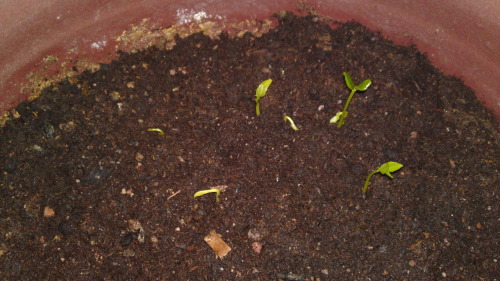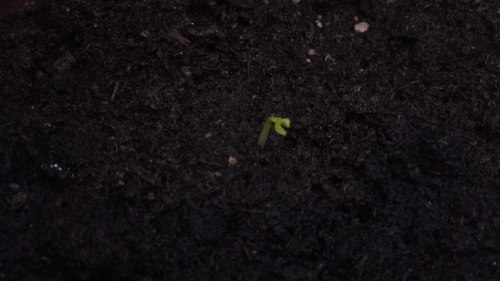Bookmark
Japan | Facts and Details
factsanddetails.com/japan.php, posted 2011 by peter in history japan language nature people reference religion travel
What it says on the label: facts and details about Japan, in lots of different categories like Japanese customs, history, religion, and even an article on those cool snow monkeys.
Bookmark
Wild Parrots Get Names From Parents | Wired Science | Wired.com
www.wired.com/wiredscience/2011/07/parrots-named-by-parents/, posted 2011 by peter in bird cognition language msm nature science video
Before a green-rumped parrotlet is even able to chirp and squawk, mom and dad teach it a distinct series of sounds used by parrots to recognize a specific individual. In short, they give their nestling a name.
...
Among other animals known to imitate the sounds of others and give each other unique names are dolphins and humans (and, possibly, whales.) Like humans and dolphins, parrots are highly social. Using names makes it easier to keep track of relationships and individuals.
Blog Post
Took a Short Walk During Lunch
wastholm.tumblr.com/post/6139813890/took-a-short-walk-during-lunch, posted 2011 by peter in nature sweden
Bookmark
Twelve unsustainable things that will soon come to a disastrous end on our planet
www.naturalnews.com/031669_life_on_earth_unsustainable_agriculture.html, posted 2011 by peter in environment food health list nature opinion
If you look around what's really happening in our world today, there's an inescapable pattern that curiously emerges: Much of what's going on is simply unsustainable. It can't go on for much longer, in other words. And it must collapse due to the laws of economics or physics. Here, I've put together a collection of twelve systems that are utterly unsustainable on our planet. Each of these twelve is scheduled for some sort of collapse or shut down in the coming years. They range from economics to medicine, population and the environment. And interestingly, the collapse of just one of these twelve would have devastating consequences across human civilization. What happens when two, three or ten of these things collapse?
Bookmark
In the Blink of Bird’s Eye, a Model for Quantum Navigation | Wired Science | Wired.com
m.wired.com/wiredscience/2011/01/quantum-birds/, posted 2011 by peter in bird nature physics science
European robins may maintain quantum entanglement in their eyes a full 20 microseconds longer than the best laboratory systems, say physicists investigating how birds may use quantum effects to “see” Earth’s magnetic field.
Quantum entanglement is a state where electrons are spatially separated, but able to affect one another. It’s been proposed that birds’ eyes contain entanglement-based compasses. Conclusive proof doesn’t yet exist, but multiple lines of evidence suggest it. Findings like this one underscore just how sophisticated those compasses may be.
“How can a living system have evolved to protect a quantum state as well — no, better — than we can do in the lab with these exotic molecules?” asked quantum physicist Simon Benjamin of Oxford University and the National University of Singapore, a co-author of the new study. “That really is an amazing thing.”
Blog Post
Ten Little Yuzu Plants
wastholm.tumblr.com/post/3523089949/ten-little-yuzu-plants, posted 2011 by peter in food japan nature
Blog Post
Ten Little Yuzu Plants
wastholm.tumblr.com/post/3523089949/ten-little-yuzu-plants, posted 2011 by peter in food japan nature
Bookmark
Harry Potter blamed for India's declining owl population
www.monstersandcritics.com/news/southasia/news/article_1596160.php/Harry-Potter-blamed-for-India-s-declining-owl-population, posted 2010 by peter in asia bird business environment literature nature
New Delhi - India's environment minister has linked the popularity of boy wizard Harry Potter to the widespread illegal trade in owls that threatens the birds in the country, news reports said Wednesday.
Jairam Ramesh said there was a 'strange fascination' among the affluent classes in India with giving owls to their children, inspired by the Harry Potter films and books that feature his feathered companion Hedwig, an IANS news agency report said.
Bookmark
One climate paper, two conflicting headlines
www.guardian.co.uk/science/the-lay-scientist/2010/oct/11/2, posted 2010 by peter in environment media msm nature science toread
Last week, on October 6th, The Guardian published a story under the headline "Sun's role in warming the planet may be overestimated, study finds.". A day later, tech website The Register published a climate story of its own, "Much of recent global warming actually caused by Sun," at a URL that ended "/solar_as_big_as_people/."
The two headlines are completely contradictory, yet bizarrely both stories report on the same Nature letter, a piece of research led by Professor Joanna Haigh at Imperial College London. So what on Earth is going on?
|< First < Previous 11–20 (26) Next > Last >|



![[photo]](/images/peter_autumn)